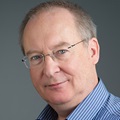Erbitux Sales Growth Will Bounce Back, Says Merck KGaA
This article was originally published in The Pink Sheet Daily
Executive Summary
Later-than-expected tenders in Europe and emerging clinical data are expected to allow sales of best-seller Erbitux to start growing again after an unexpected first-quarter decline, as the German company starts late-stage studies with PD-L1 inhibitor avelumab in its collaboration with Pfizer.
Merck KGAA will address over coming months the unexpected significant decline in first quarter sales for one of its best-selling products, the anticancer Erbitux (cetuximab), executives said in its earnings call May 19.
The Erbitux sales decline comes at an awkward time for the diversified German big pharma, whose top-selling product Rebif (interferon beta-1) is also reporting a decline in sales, albeit one that was expected because of increasing competition from oral multiple sclerosis drugs. The family-controlled company is also awaiting regulatory clearance of its acquisition of MilliporeSigma, expected in the middle of this year (Also see "Merck KGAA Rebuilds Its R&D Portfolio, Re-Aligns Into Three Businesses" - Pink Sheet, 4 Mar, 2015.).
Erbitux sales declined by 6% to €205 million ($228 million) in the quarter and Rebif sales fell by 16% to €430 million ($480 million), with the latter driven by lower volumes that were only slightly mitigated by U.S. price increases. But veteran products Glucophage (metformin) and Concor (bisoprolol) produced sales increases of 26% and 16% respectively; Glucophage supply issues have now been resolved.
The decline in Erbitux sales was caused by a 3.5% price decrease in France and “phasing effects” in other countries, including supply tenders in Russia and the Middle East being pushed back into later quarters, CFO Marcus Kuhnert said during the call. And market data from the 2014 fourth quarter indicates that Erbitux is maintaining its leadership position in terms of market share, claimed Belen Garijo, Merck’s executive board member responsible for health care.
Activities that are expected to improve the uptake of Erbitux over coming months include highlighting the emerging clinical trial results with the drug in patient subgroups like those with RAS-wild type colorectal cancer, said global head of R&D Luciano Rossetti. Garijo pointed out Erbitux was making steady progress in head and neck cancer as well.
Analysts had a sanguine view of the results. “Underlying performance was solid, in our view, and weak spots seem largely temporary,” said Deutsche Bank analysts in a May 20 note. Analysts at Credit Suisse said they “continue to believe Merck’s legacy franchises are more robust than the market expects.”
The markets remain unconvinced though about the potential of Merck’s investigational PD-L1 inhibitor avelumab (MSB0010718C), although both progression-free survival (PFS) and overall survival (OS) data will be presented at the forthcoming American Society for Clinical Oncology meeting, the Credit Suisse analysts added. Merck said Phase I data on avelumab’s use in ovarian cancer, lung cancer and gastric cancer, and Phase II data in Merkel cell carcinoma, will be presented at the ASCO meeting this June.
R&D Spend Increases
Merck’s R&D spend is increasing because of the start of Phase III development of avelumab in collaboration with Pfizer, announced in April, and the Phase III development of another investigational anticancer agent, evofosfamide (Also see "Pfizer Seizes Long-Term Immuno-Oncology Opportunity With Merck Deal" - Pink Sheet, 17 Nov, 2014.).
In the 2015 first quarter, R&D spending by Merck’s health care businesses rose by 15% to €348 million compared with the same quarter last year. The company intends to begin up to 20 clinical development programs involving avelumab during 2015, of which around five to six will be registration studies. The increase in spending is expected to be mitigated over several quarters by Pfizer’s $850 million upfront payment in the collaboration.
Unlike other PD L1 inhibitors, avelumab has natural cytotoxic ADCC (antibody dependent cell-mediated cytotoxicity) activity, but this property has not been linked with any differentiation in activity so far, Rossetti said. So far, the compounds look comparable and any differentiation is likely to come mostly from experimental study design, differences in combination and biomarker strategies, and use in selected tumor types, Rossetti added.
The Phase III JAVELIN trial of avelumab is evaluating its use as second-line therapy in patients with non-small cell lung cancer (Also see "Rossetti Sets A High Bar At Merck Serono" - In Vivo, 27 Apr, 2015.). The primary endpoint of the study is overall survival in patients with PD L1-positive NSCLC. Secondary endpoints will be assessed across the entire population regardless of PD-L1 status and will include overall survival, overall response rate, and patient reported outcomes.
Rossetti said the two Phase III trials of the hypoxia-activated prodrug evofosfamide in soft tissue sarcoma and pancreatic cancer (MAESTRO) are now fully recruited, with data from the trials likely to be available early in 2016.
Merck has discontinued development of abituzumab (formerly DI17E6) in oncology, and development of pimasertib in combination with Sanofi’s SAR405838 in solid tumors.
In the year’s first three months, Merck group sales increased by 15.7% to €3 billion, although currency effects accounted for 8.9% and portfolio effects for 5.5% of that growth. Organically, sales grew by 1.3%. In its health care business, sales rose by 7.4% to €1.7 billion as reported, or by a currency and portfolio-adjusted 0.3%.
One project bearing fruit was the company’s efforts to diversify its businesses geographically, with 47% of its total sales now coming from outside the U.S. and Europe.
